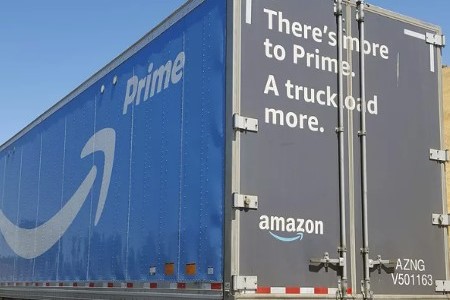March 12, 2020 – In writing this today I feel as guilty as many of my readers who use online shopping sites like Amazon, and Wayfair to buy stuff. In the past year, I began buying my shaving gear online (the convenience and price were too good not to try). When we recently did a bathroom renovation, I sourced the vendor online and bought accessories through Amazon. We have sourced furniture and rugs from Wayfair to populate our living and dining room space. Having bought all of that I consider my wife and me to be occasional-only online shoppers, that is, when I compare our purchasers to my neighbours.
In our building, the pre-Christmas rush of online shopping deliveries was overwhelming last year. The building had to empty an office and designate it for the overflow of parcels that came through the lobby. Every day, UPS, FedEx, CanadaPost and other couriers marched through our doors.
It is no wonder that “bricks & mortar” small businesses have suffered as well as large department store chains. Only those who have adopted a mixed model of both “bricks & clicks” may survive this paradigm shift in consumer preference.
Buying online isn’t just disruptive to existing business. It is also an environmental threat, increasing greenhouse gas (GHG) emissions while creating tons of unnecessary waste that clutters recycling and landfill sites.
In a recent United Kingdom research study it compared three types of shopping experiences:
- local instore purchases involving driving to a store and back.
- online or telephone shopping with delivery by local suppliers.
- dedicated online-only shopping from large distribution centres (i.e., Amazon).
The first option produced 0.1 kilograms of GHGs per unit purchased. The second produced 0.07 kilograms. And the last produced 0.18 kilograms.
Why was the second option the lowest producer of GHG emissions? Because the tendency to order more than one item with a local supplier brings down the per-unit GHG contribution. And the GHG contribution is shared with other purchasers when the store optimizes its deliveries using a single vehicle for the job.
We are living in the age of fast-moving consumer goods (FMCGs). Ordering from Amazon is a case in point particularly if you are a Prime subscriber. But this sell-and-distribute-quickly model is environmentally dangerous. The global reach of an operation like Amazon sources its products from the entire planet. The item you order online could come from China, or Vietnam, and be put into containers and freighted to a North American distribution centre for reshipment. The accumulated GHGs from these types of orders cannot be underestimated.
The study which was published in Environmental Science & Technology recognizes that FMCGs have become attractive to consumers because of convenience, low prices, and quick delivery. The model isn’t set up to be environmentally sustainable.
The researchers, however, have some suggestions on ways to bring down GHGs from pure-online purchases. Here are some of them.
- Eliminate all fossil-fuel-based transportation. This is easier to do for the last mile than for goods sourced from overseas that end up going by ocean.
- Bring distribution centres closer to where customers are by increasing the number of warehouses.
- Eliminate multiple-sourced fulfillment for individual orders involving more than one item, a common occurrence.
A final observance from the study: online shopping doesn’t necessarily substitute for traditional local shopping. Instead, it appears to be a stimulus to shop and appeals to impulse buying behaviours. So the net result is we end up with GHGs from both the pure-online as well as local-shopping experience.
My conclusion is we would all be far better off if we shopped less and made do with what we have.









